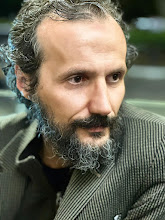10 Eylül 2009 Perşembe
THE FIFTY-SIXTH DISCOURSE On the servant’s becoming extinct to creatures, passions, the self, the will and desires
When the servant of God has vanished from creation and desire,
and from his own self and purpose and wishes of this world and of the
hereafter, he does not want anything except God, the Mighty, the Glorious,
and everything goes out of his heart. It is then that he attains God Who
selects him and chooses him and loves him and makes him loved by the
creation, and also makes him such that he loves Him as well as His
nearness and receives His favour through His grace and rolls in His
blessings. He throws open to him the doors of His mercy and promises to
him that He will never shut them against him. The servant then adopts God,
the Mighty, the Glorious, and intends by His intention, and devises means
by His devising, and wills a thing by His will, and feels pleased by His
pleasure, and carries out His commandment and not anyone else's, and
does not see any existence except His, the Mighty, the Glorious, nor any
act. Then it pleases God that He makes to him promise and does not manifest
its fulfilment to His servant, and the thing which the servant expects in this
connection may not come to him, and this is because the scparateness
disappears with the disappearance of desire and purpose and of the seeking
of enjoyments. Then his whole self becomes the very act of God, the
Mighty, the Glorious, and His object. So neither promise nor breach of
promise can be spoken of in this connection because this kind of thing can
be attributed to one who has desire and purpose. At this stage, the promise
of God, the Mighty, the Glorious, in respect of such a person, can be
illustrated by the example of a man who intends within his own self to do a
certain thing, then turns the same intent towards something else in the same
way as God, the Mighty, the Glorious, has recalled to our Prophet
Muhammad (peace and blessings of Allah be upon him) with regard to
revelations abrogating and abrogated as in the words:
Whatever message We abrogate or cause to be forgotten, We bring
one better than it or one like it, Knowest thou not that Allah is
Possessor of power over all things? (2:106)
When the Holy Prophet (peace and blessings of Allah be upon him),
purified of desire and purpose except on certain occasions which God has
mentioned in the Holy Qur'an, such as in the case of the prisoners on the
day of Battle of Badr as in the following words:
You desire the frail goods of this world, while Allah desires (for
you) the Hereafter. And He is Mighty, Wise. . Were it not for an
ordinance from Allah that had gone before, surely there would have
befallen you a great chastisement for what you were going to do.
(8:67-68)
He (the Holy Prophet) was the object of God, whom He would not
leave in one condition and in one thing and in one promise but He would
shift him towards the decree of Destiny and leave the reign of Destiny to
be handled by him; so He would move him and make him roll in the midst
of Destiny and keep him alert by His words:
Knowest thou not that Allah is Possessor of power over all things?
(2:106)
In other words, certainly you are in the ocean of His decreed
Providence, the waves of which toss you sometimes this way and
sometimes that. So the terminus of the affairs of the wali is the starting
point of the affairs of the Holy Prophet. There is no stage after wilayat and
badaliyat except the stage of nubuwwat.

